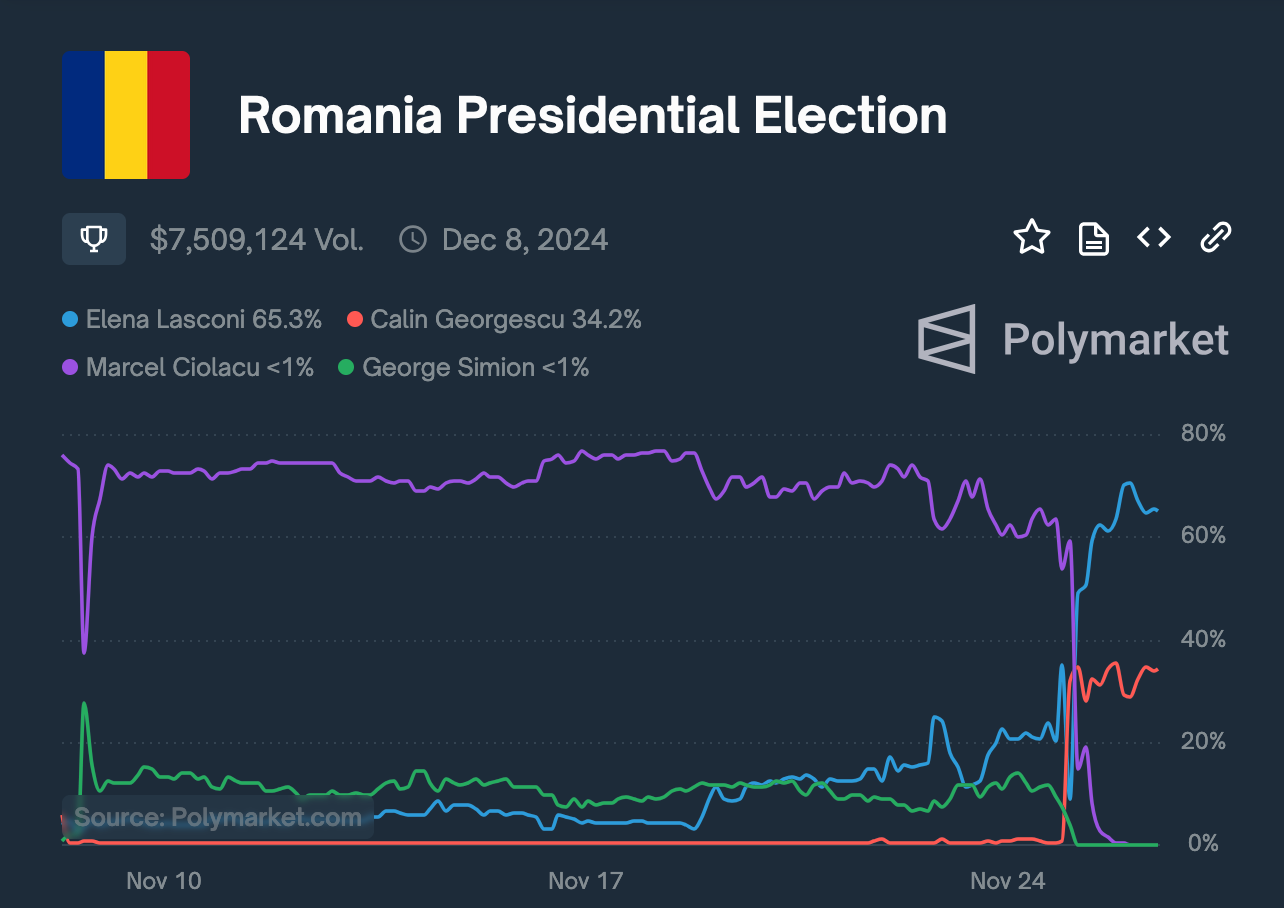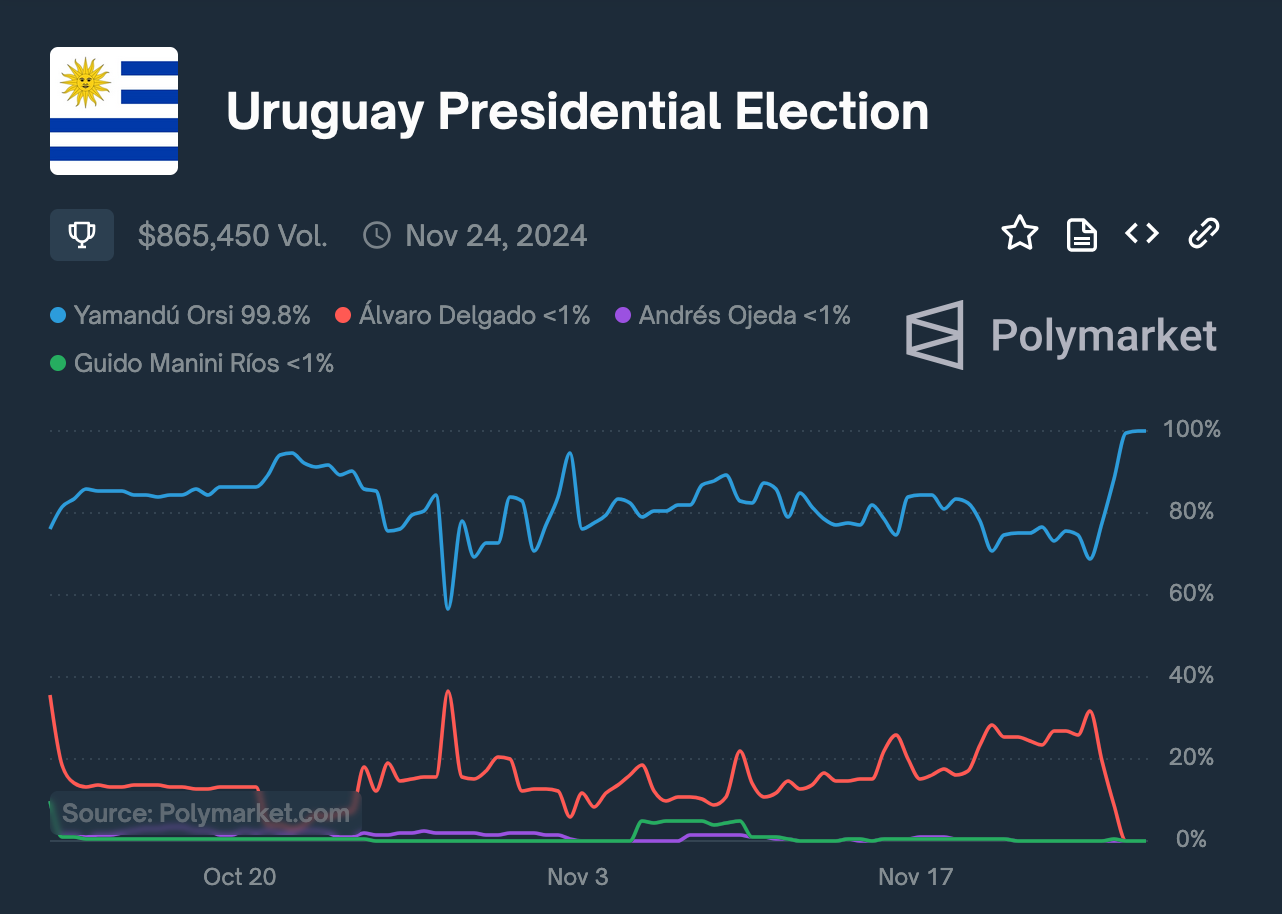
As Polymarket predicted, the next president of Uruguay is going to be the center-left candidate Yamandú Orsi.
Elected on a second voting round on Sunday 25, the candidate for Frente Amplio (Broad Front) won 49% of the vote, while Álvaro Delgado, the right-wing contender representing the ruling conservative coalition, got 46%.
On the same day that Orsi was elected to power, Romanians in Europe went to the polls to vote in the first round of the presidential elections.
Polymarket, like everybody else, got it wrong.
Before November 25, the current prime minister, Marcel Ciolacu, was the favorite on Polymarket; reformist Elena Lasconi of the Save Romania Union party followed, and the far-right Alliance's George Simion came in third.

Official polls also gave the lead to Ciolacu and put Lasconi and Simion in as the possible seconds.
On Sunday night, however, the unexpected happened: the virtually unknown Călin Georgescu, whom international media describes as a "hard-right nationalist with pro-Russian leanings" and who made most of his presidential campaign on TikTok and who on Polymarket was under the category "Others" led the polls with almost 23% of the vote.
As Polymarket predicted, Lasconi came in second with around 20% of the votes, and the current president trailed her at 21%, meaning that, contrary to all predictions, he didn't make it to the second round.
Volume matters
The infamous Polymarket poll, which almost always gave Donald Trump the lead in the U.S. elections and called his victory before any other organization, collected over $241.9 million in bets.
While the crypto platform's bettors got the Uruguayan election result right, its margin of error was absurd: it consistently gave Orsi a chance of winning higher than 70% and frequently above 80%, contradicting official polls that pointed to a tight election, which they indeed were.

In Romania, the information market was as wrong as anybody else, and it was unable to predict a significant event in the country's history.
Romania's presidential election poll is currently at $7,9 million, while users put only $824 thousand on Uruguay's presidential winner wager.
A key reason for the poor performance of Polymarket in non-U.S. elections so far is that volume matters.
Markets with low volume aren't effective because they don't compensate for complex analysis for a small payout and because there aren't enough naive traders from whom pro-traders can profit.
Low volume also means that a small number of bettors can easily influence the polls, which is why there was so much skepticism surrounding Polymarket during the U.S. elections.
With the biggest year of elections coming to an end - in 2024, more than 80 countries across the globe had elections - Polymarket has proven that provided it attracts enough attention, it can be a powerful prediction mechanism.
It has, however, also shown that, unless it attracts enough attention, its prediction capabilities are still very far away from what they ought to be in an efficient "information market."

